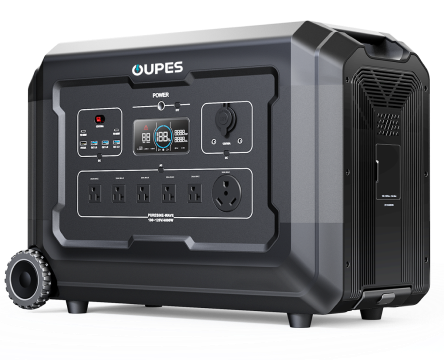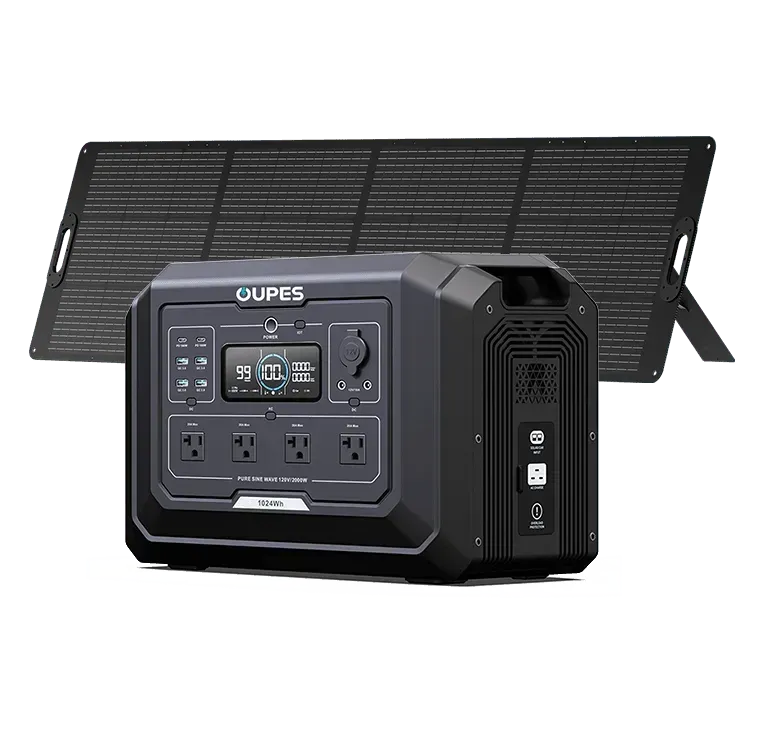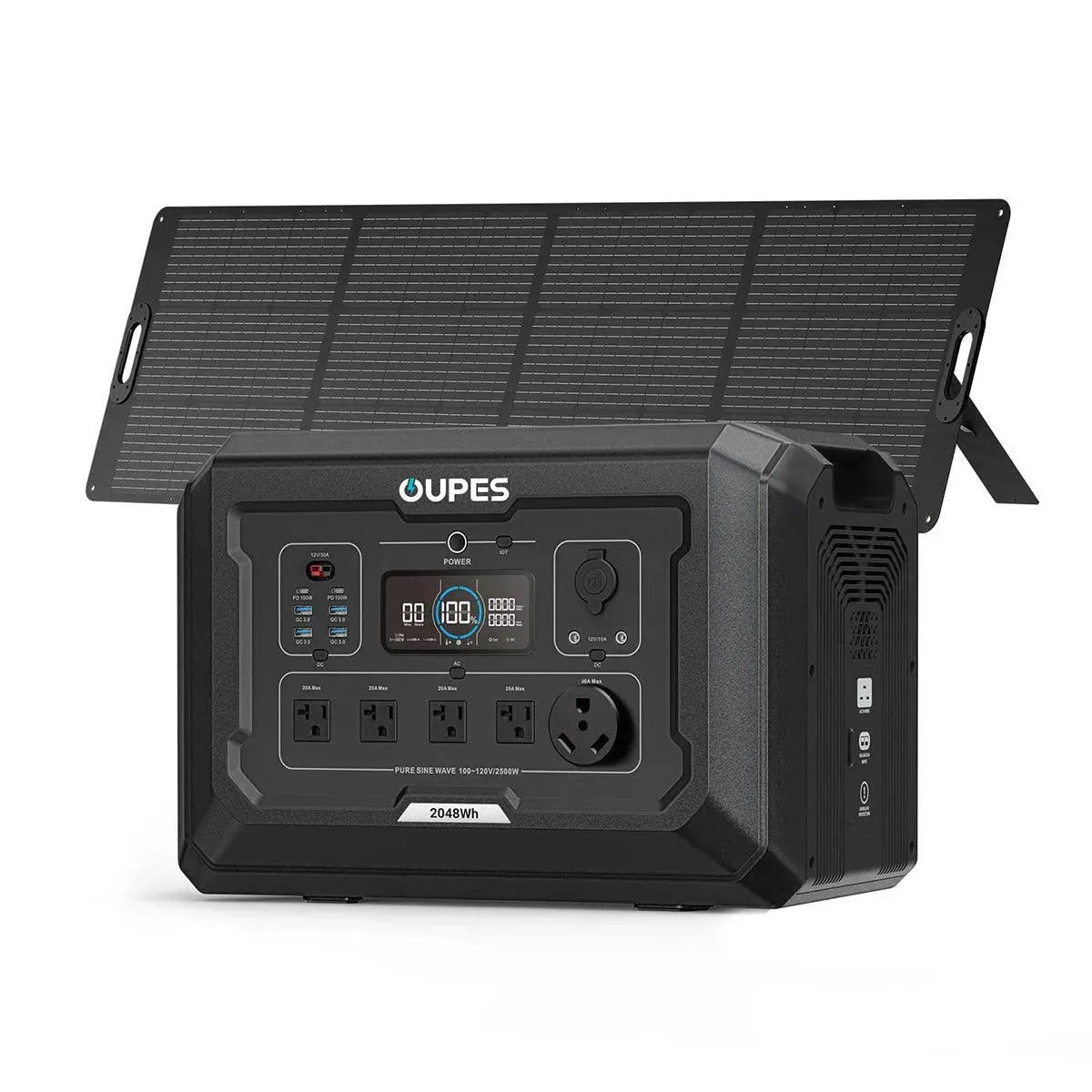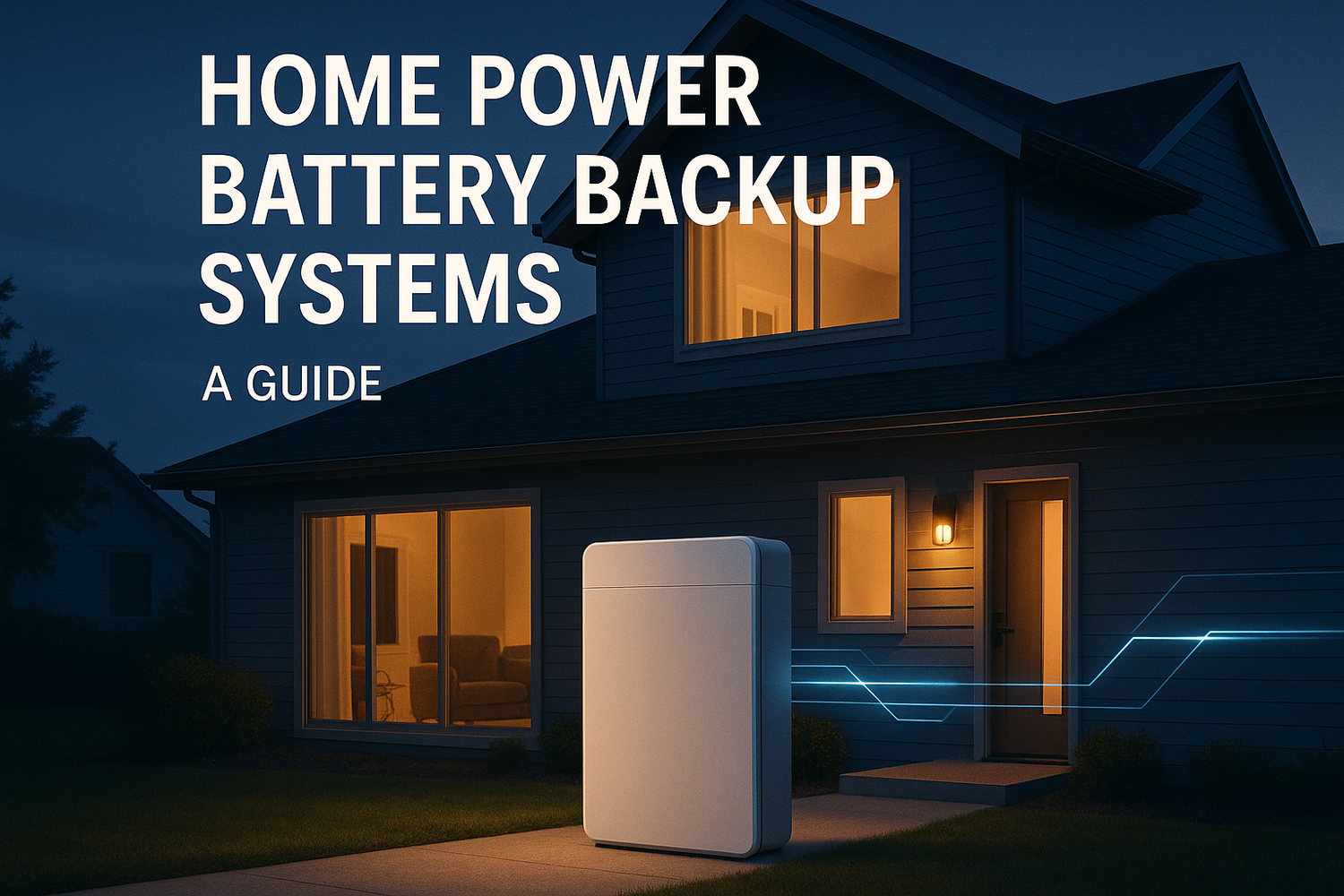People are now using solar generators due to their reliability during power outages. They’re especially useful due to poor weather conditions, unpredictable fuel prices, and older electric grids. Homeowners no longer rely on fossil fuel generators that pollute the environment during blackouts, as solar generators keep them powered with energy straight from the sun.
There are a few important factors to take into account when considering a solar generator, particularly when it involves long-term economic and environmental impact. Replacing fuel with solar energy will reduce spending on gasoline or diesel, as well as reducing carbon emissions. However, selecting the right one for your household can be quite a challenge since these generators come in different models and variants.
This guide covers all the fundamentals you have to think about when purchasing a solar emergency generator, its operational qualities, and the appropriate sizes available for your home.
What is a Solar Powered Generator?
Solar generators harness the power of the sun through PV panels which capture solar energy. The energy is converted to electricity which can be used directly or stored for later use. Solar generators are beneficial for environmentalists since it is a renewable energy source that doesn’t emit harmful elements or noises.
The components of a solar-powered backup include:
- The Solar panel, which captures sunlight so as to convert it to electricity.
- Battery storage systems, which store electricity to be used at a later time such as during the night or when there is no sunlight.
- Inverters, which convert stored DC power into AC power to allow home appliances to function.
- Charge controllers, which control the energy flow and prevent overheating of the batteries.
These generators can serve multiple purposes including powering home appliances, off-grid systems and even emergency power systems.
Uses for a Portable Solar Generator
Due to their abundance of use, Portable Solar-Powered generators are some of the most valuable inventions today. From home backup or outdoor activities, here are some of the important uses of these generators:
- These generators keep the power on during outages and are also used to run crucial electronics such as fridges and heaters.
- These devices are popularly used to charge phones and laptops, or even turn the lights on, when on a camping or RV trip.
- Solar-powered generators can help off-the-grid residents use renewable energy in remote areas.
- These generators can also be used to charge power tools or to keep powerful machines running, especially during emergencies such as a hurricane, storm, or power failure.
A solar-powered generator means there is backup power available at all times, especially during shortages.
Features of Portable Solar Generators
When purchasing a solar-powered generator for home usage, you need to consider the following features.
- To start off, check how much battery it can store as this will directly impact how long the generator can run.
- There should be the option to charge the device with a solar panel, household wall outlet, and car charger.
- Make sure it is small, lightweight, and portable so that it can be transported without any hassle.
- Some models come with extra battery connections that allow for additional runtime.
These features will determine if the solar-powered emergency generator will meet the needs of the household.
What Types of Solar Generators Are Available for Houses?

For home applications, there are two main types of solar generators: portable generators and whole-house generators.
1. Whole-House Generators
This type of solar generator is most appropriate for large households as it provides backup power to the entire home. They operate best with batteries greater than 5000Wh, which makes them capable of powering household appliances such as refrigerators, washing machines, and heating systems.
Advantages:
- It can support multiple high-wattage appliances.
- Long battery life with expandability options.
- Ideal for homes in areas with frequent blackouts.
Disadvantages:
- Higher initial investment.
- Requires professional installation.
2. Portable Generators
A portable solar generator is compact and designed for travel. Typically, it ranges from 500Wh to 3000Wh making them best suited for camping and other off-grid activities like charging your cellphone or laptop and powering lights.
Advantages:
- Lightweight and easy to transport.
- No installation is required.
- Affordable compared to whole-house generators.
Disadvantages:
- Limited capacity for high-wattage appliances.
- Shorter battery runtime.
What to Look for in a Solar-Powered Generator?
You must account for a number of different factors, such as efficiency and user-friendliness, while looking for the optimal solar generator.
1. Surge Power Capacity
Surge power refers to the additional power required to start an appliance. For gas or electric power tools, saws, and refrigerating appliances, opt for a solar-powered backup generator that can sustain a higher wattage output.
2. Battery Capacity
A generator with sufficient battery capacity can store energy and maintain several household appliances in working order. Generators designed to provide standby power for several hours have a minimum capacity of 2000Wh.
3. Inverter Rating
The inverter, mostly used in home applications, takes DC power from the battery and converts it to AC electric power. In many cases, pure sine wave inverters are strongly preferred for critical applications, such as supporting computers or medical equipment.
4. Charging Modes
A solar-powered emergency generator should offer multiple charging modes to ensure flexibility. These include:
- Solar charging is used for eco-friendly power generation.
- When plugged into the existing electrical source, wall outlet charging guarantees rapid charging.
- It can charge while moving, which is a practical feature, particularly when traveling by car.
5. Appliances That You Can Charge
Make sure the solar-powered backup generator can handle the wattage requirements of your appliances. A good generator should support the following:
- Refrigerators and Freezers
- Laptops, TVs, and Wi-Fi Routers
- CPAP Machines and Medical Equipment
- LED Lights and Fans
6. Portability
If you plan on using a generator for camping, traveling, or emergency evacuations, portability is key. When searching for a suitable option, look for lightweight options with wheels and carrying handles for easier transportation.
7. Unique Features
Certain advanced models of solar-powered generators include features that improve their usability. Some of them include:
- Expendable battery packs can be used to boost the power storage capacity of your battery.
- MPPT Charge Controllers enhance the charging effectiveness.
- Multiple output ports such as AC, USB, and DC are installed, that can be used for diverse charging needs.
8. Extra Considerations
These are some other considerations to make the most of your solar-powered generators.
- Solar generators operate without producing any sounds, unlike traditional fuel generators. So, choose the generator with the lowest noise ratings.
- Models designed with waterproof and dustproof properties extend their product lifespan.
- The warranty period ensures product reliability because of its protection against manufacturing faults.
9. Watt Hours
Watt-hours (Wh) is a measure of the generator's energy storage capacity. Aim for a minimum of 3000Wh if you require a solar-powered generator for domestic use in order to accommodate several appliances.
10. Peak Power
Peak power is the highest wattage a generator can deliver momentarily. Verify peak power specifications carefully when buying appliances with motors (such as refrigerators or pumps) since they need increased power for startup.
11. Recharge Time
The duration needed to charge a solar-powered emergency battery system depends on both the battery capacity with the solar panel power and ambient weather conditions at the installation location. Emergency generators equipped with high-capacity solar power and fast MPPT controllers speed up charging time, thus guaranteeing backup power during critical situations.
Conclusion
A solar-powered generator is an excellent alternative to relying on the electrical grid for dependable and environmentally responsible backup power for your house. These generators will be your economical and energy-efficient fallback option, whether you want to be prepared for emergencies, avoid conventional electricity, or simply to be more environmentally conscious.
For the most effective power backup for your entire house, consider investing in a whole-house solar generator equipped with an inverter and a high-capacity battery. For emergency situations and outdoor activities, portable solar-powered generators can supply power for essential devices such as laptops and cell phones during outages.
If you are looking to buy reliable solar generators, check out OUPES to find the best model for your situation.
FAQs
Do solar generators come with panels?
There are some solar-powered backup generators that come with panels and others that need to be independently purchased. Always verify compatibility by consulting the product specs.
Can a Solar Generator Run a Refrigerator or A/C?
It is possible; however, it mostly depends on how powerful your solar generator is. A refrigerator can run off a solar-powered generator with at least 2000Wh, while air conditioners require more complicated systems.
Why Are Solar Generators the Best Option as a Backup for the Home?
The solar emergency generator serves as a non-fuel-powered, quiet, efficient, eco-friendly, portable, and renewable energy source.
What Size of a Solar Generator Do You Need to Run a House?
When you think of whole-house backup, you need a 5000Wh generator with a big inverter capacity. Household needs for backup power may be met with as little as 1000-2000Wh, but small families can manage with 3000Wh. It all comes down to your energy requirements.

































Leave a comment
This site is protected by hCaptcha and the hCaptcha Privacy Policy and Terms of Service apply.